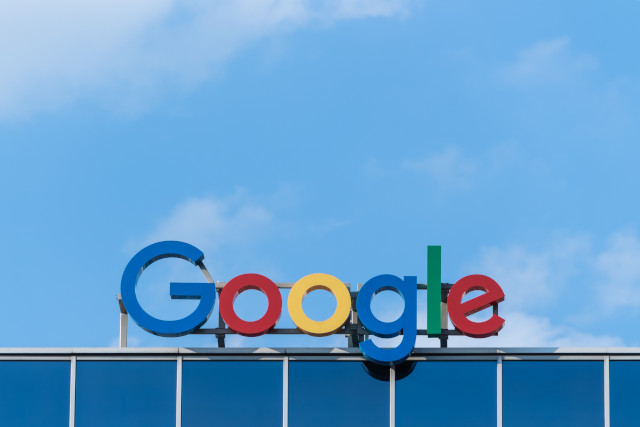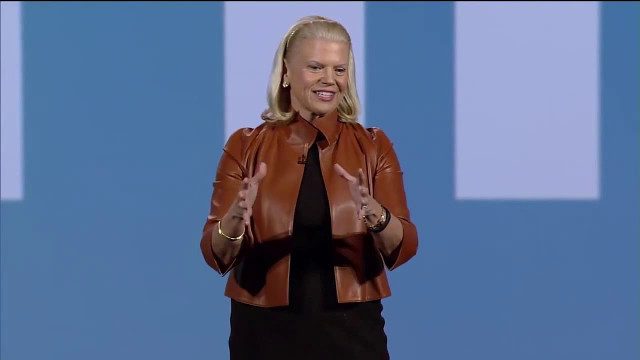
Photo by Jérémy Stenuit on Unsplash
The COVID-19 virus – which is rapidly earning pandemic status – has already caused massive disruption to the IT industry. As the virus spreads globally, companies are cutting back travel and pulling out of conferences.
The physical supply chain continues to be impacted with no timeline or solutions emerging other than “wait until after April”.
Acquisitions/Investments
- DocuSign acquires Seal Software for $188M to enhance its AI chops
DocuSign says it will continue to sell Seal’s analytics tools. What’s surely more important to DocuSign, though, is that it will also leverage the company’s AI tools to bolster its DocuSign CLM offering. CLM is DocuSign’s service for automating the full contract life cycle, with a graphical interface for creating workflows and collaboration tools for reviewing and tracking changes, among other things. And integration with Seal’s tools, DocuSign argues, will allow it to provide its customers with a “faster, more efficient agreement process,” while Seal’s customers will benefit from deeper integrations with the DocuSign Agreement Cloud.
https://techcrunch.com/2020/02/27/docusign-acquires-seal-software-for-188m-to-enhance-its-ai-chops/
- Xerox Edges Closer to Fixing Its HP Printer Jam
Were HP to become the acquirer, the new firm would emerge with significantly less debt. The Xerox offer as it stands would likely load the new entity with debt representing at least five times earnings before interest, taxes, depreciation and amortization. In the unlikely event that HP were to pay cash for Xerox (there would almost certainly be a stock component), then it would have debt of less than four times Ebitda.
That includes the impact of a $15 billion buyback that HP announced today. The biggest risk for Xerox was that HP would essentially become the counterbidder for itself. By using his own balance sheet to boost shareholder value, Lores is doing just that. A $15 billion repurchase might buy back 50% of the shares, based on HP’s valuation before Xerox’s first bid. That could lift the share price well above the $24 a share of Xerox’s most recent offer.
Artificial Intelligence/Robotics
- IBM and Microsoft support the Vatican’s guidelines for ethical AI
The pledge, presented to Pope Francis today, calls for AI that safeguards the rights of all humans, especially the underprivileged, and for new regulations in areas like facial recognition. It asks tech leaders to “humanise technology and not ‘technologise’ humanity,” Novena News reports.
“The Vatican is not an expert on the technology but on values,” Francesca Rossi, IBM’s global AI ethics leader, said in a statement. “The collaboration is to make the Vatican and the whole society understand how to use this technology with these values.”
The pledge is part of a larger workshop on ethical AI led by the Pontifical Academy for Life in the Vatican this week. The Academy hopes governments, NGOs, industry leaders and other associations will join the “Rome Call for AI Ethics,” along with tech companies like IBM and Microsoft.
https://www.engadget.com/2020/02/28/ibm-microsoft-vatican-ai-ethics-pledge/
Cloud
- Oracle has been outed as a donor for the Internet Accountability Project
Database software giant Oracle Corp. has been outed as one of the donors of the Internet Accountability Project, which is a conservative organization that’s been throwing its weight behind a growing call for tougher privacy rules and stronger regulation of big tech companies.
The IAP had always refused to say who was funding it, but it revealed in a disclosure on its website that Oracle donated between $25,000 and $99,000 last year, according to a Bloomberg report Tuesday.
Oracle has been funding the IAP as part of its long-running campaigns against tech rivals such as Amazon Web Services Inc. and Google LLC. Oracle has been gunning for Amazon and its cloud business for years, while it’s also involved in a lengthy legal battle with Google regarding the use of patents relating to the Java programming language it owns.
https://siliconangle.com/2020/02/26/oracle-outed-donor-internet-accountability-project/
Security/Privacy
- ICE has run facial-recognition searches on millions of Maryland drivers
U.S. Immigration and Customs Enforcement officials have been permitted to run facial-recognition searches on millions of Maryland driver’s license photos without first seeking state or court approval, state officials said — access that goes far beyond what other states allow and that alarms immigration activists in a state that grants special driver’s licenses to undocumented immigrants.
More than 275,000 such licenses have been issued statewide since 2013, when the state became the first on the East Coast to defy federal guidelines and allow undocumented immigrants to obtain a license without having to provide proof of legal status. The technology now under scrutiny could let an ICE official run a photograph of an unknown person through the system and see if any potentially undocumented immigrants are returned as a match.
Software/SaaS
- Oracle to pay $12 million to settle ERISA suit
Oracle Corp. agreed to pay $12 million to settle a class-action lawsuit filed against the firm for allegedly breaching its fiduciary duties in managing its $16.5 billion 401(k) plan.
The suit, filed in 2016, alleged that Redwood City, Calif.-based Oracle caused participants of its 401(k) savings and investment plan “to pay unreasonable record-keeping and administrative fees” to its record keeper, Fidelity Management Trust Co.
https://www.pionline.com/courts/oracle-pay-12-million-settle-erisa-suit
- Expedia cuts 3,000 jobs, including 500 at new Seattle HQ
Expedia said at the time that it was targeting $300 to $500 million of annual cost savings, but hadn’t previously announced explicit plans for job cuts.
The layoffs come across the company and globe. About 500 people will be let go in Seattle, where Expedia recently moved to a new 40-acre waterfront campus and employs more than 4,000 people. Expedia said it will eliminate certain projects and activities, and reduce the use of vendors and contractors. It will provide impacted workers with severance packages that include extended healthcare.
“Moving forward, we will exert more discipline in setting priorities and allocating resources, simplify our business processes and inter-dependencies, raise the bar on performance standards, and demonstrate and demand accountability for results,”
Infrastructure/Hardware
- Apple Loses Pair of Key Operations, Supply Chain Executives
Nick Forlenza, a vice president of manufacturing design, has retired from Apple, while Duco Pasmooij, another vice president who worked on operations, is discussing an exit in the near future, according to people familiar with the moves. Pasmooij left the operations team over a year ago, moving into a role reporting to the company’s head of augmented reality efforts, said the people, who asked not to be identified discussing personnel.
Apple has about a hundred vice presidents across the company who help Chief Executive Officer Tim Cook and the senior executive team run one of the world’s most profitable companies. An Apple spokesman declined to comment. Forlenza and Pasmooij didn’t respond to requests for comment.
Other
- Disney’s Iger Is Now in a Rare Role: Executive Chairman
Such arrangements work when an executive chairman cedes enough control to give the new CEO autonomy, while remaining present as a sounding board, says Anthony Abbatiello, who heads the leadership and succession-planning practice at Russell Reynolds Associates, an executive-search firm. Transitions can crumble if the newly installed chairman insists on micromanaging operations, he said.
When Jim McCann, the founder and longtime CEO of 1-800-Flowers.com Inc., became executive chairman in 2016 and handed the reins to his brother, Chris McCann, he says he tried to clearly separate the roles. He stopped attending some meetings and quarterly gatherings of managers, and refrained from participating in corporate earnings calls. Instead, he took on projects focused on innovation and better serving customers, leaving his brother to handle day-to-day operations.
A mentor advised the two executives to never let others drive a wedge between them. “That’s rung in our ears,” Jim McCann said.
https://www.wsj.com/articles/disneys-iger-is-now-in-a-rare-role-executive-chairman-11582840014
- Salesforce co-CEO Keith Block steps down
Block stepped into the co-CEO role in 2018, after a long career at the company that saw him become vice chairman, president and director before he took this position. Block spent the early years of his career at Oracle . He left there in 2012 after the release of a number of documents in which he criticized then-Oracle CEO Mark Hurd, who passed away last year.
Industry pundits saw his elevation to the co-CEO role as a sign that Block was next in line as the company’s sole CEO in the future (assuming Benioff would ever step down). After this short tenure as co-CEO, it doesn’t look like that will be the case, but for the time being, Block will stay on as an advisor to Benioff.
https://techcrunch.com/2020/02/25/salesforce-co-ceo-keith-block-steps-down/
- Amazon tells employees to pause nonessential travel in U.S. due to coronavirus
Amazon sent the notification to employees on Friday. In a separate internal communication, Dave Clark, who runs Amazon’s retail operations, told employees to hold off on planning group or team meetings that require travel until at least the end of April, when he estimated that the company will have a better sense of the virus, its spread and its impact.
In January, Amazon said it was restricting employee travel to China “until further notice” amid the coronavirus outbreak. The company also recommended that employees who are expected to travel back from one of the affected provinces of China work from home for two weeks. Amazon urged employees who experienced any symptoms to seek medical attention before returning to the office.
https://www.cnbc.com/2020/02/28/amazon-pauses-non-essential-travel-in-us-due-to-coronavirus.html
Coronavirus concerns prompt cancellation of Facebook F8 developer conference“This was a tough call to make — F8 is an incredibly important event for Facebook and it’s one of our favorite ways to celebrate all of you from around the world — but we need to prioritize the health and safety of our developer partners, employees and everyone who helps put F8 on,” Konstantinos Papamiltiadis, Facebook’s director of developer platforms and programs, said in a statement.
https://www.cnet.com/news/coronavirus-concerns-prompt-cancellation-of-facebook-f8-developer-conference/
GDC 2020 has been canceledIn recent days, nearly all of the event’s top corporate sponsors announced that they would not be sending employees to the event due to concerns surrounding coronavirus. Microsoft, Unity, Epic, Amazon, Facebook and Sony had all bowed out of the event. GDC’s statement did not reference the virus.
The company behind GDC detailed that they will be refunding conference and expo attendees in full, though a blog post details that the group hopes to host a GDC event later in the summer, noting, “We will be working with our partners to finalize the details and will share more information about our plans in the coming weeks.”





